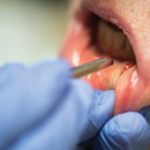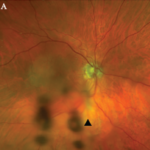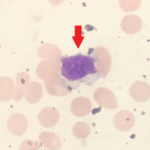Two sessions at ACR Convergence 2021 addressed a holistic approach to taking care of older patients with RA & other rheumatic diseases.

Subcategories:Axial SpondyloarthritisGout and Crystalline ArthritisGuidelinesMyositisOsteoarthritis and Bone DisordersOther Rheumatic ConditionsPain SyndromesPediatric ConditionsPsoriatic ArthritisRheumatoid ArthritisSjögren’s DiseaseSoft Tissue PainSystemic Lupus ErythematosusSystemic SclerosisVasculitis

Two sessions at ACR Convergence 2021 addressed a holistic approach to taking care of older patients with RA & other rheumatic diseases.

Albayda et al. describes a North American cohort of patients with dermatomyositis, reporting that small ubiquitin-like modifier activating enzyme (SAE) autoantibodies are clearly associated with this clinical disease. Patients with this clinical phenotype most commonly present with a rash first, followed by muscle involvement.

A presentation at ACR Convergence 2021 discussed the 2020 ACR Guideline for the Management of Gout, the latest information on the risk of cardiovascular death associated with febuxostat and the use of pegloticase for patients with gout.

David S. Pisetsky, MD, PhD |
Dr. Pisetsky’s picks for the top research in lupus presented at ACR Convergence 2021.

Recent research indicates tumor necrosis factor inhibitors may slow disease progression in the spine of patients with axial spondyloarthritis.

Katie Robinson |
EULAR—Passive exposure to smoking during childhood or adulthood increases the risk of developing rheumatoid arthritis (RA), according to a large prospective cohort study of healthy French women presented during EULAR’s 2021 virtual European Congress of Rheumatology. Moreover, the association was mainly observed among women who had themselves never smoked.1 “In this study, we found an…

Labial salivary gland biopsy (i.e., lip biopsy) is a useful tool to help diagnose Sjögren’s syndrome in suspected patients, but most rheumatologists are not trained to perform the minimally invasive procedure. A new, 40-minute training video and slide presentation with step-by-step instructions may help them fill that critical skill gap. Two rheumatologists collaborated to create…

Iryna Nemesh, MD, Saleema Kherani, MD MPH, Shikha Singla, MD, & William Wirostko, MD |
Syphilis is a chronic sexually transmitted disease (STD) caused by the spirochete Treponema pallidum. The clinical manifestations of syphilis are divided into four stages: 1) the primary stage, characterized by painless mucosal or cutaneous chancre at the site of infection that resolves spontaneously; 2) the secondary stage in which a generalized maculopapular rash and condyloma…

Joshua Solomon, MD, & Paul F. Dellaripa, MD |
Introduction The understanding and treatment of rheumatoid arthritis (RA) has evolved dramatically in the past 20 years. As gains have been made in treating joint disease in RA, our understanding of the impact of extra-articular manifestations of RA, such as cardiac and lung disease—specifically interstitial lung disease (ILD)—has gradually increased. While rheumatologists increasingly appreciate the…

Nam D. Nguyen, DO (Maj., USAF, MC), Erica Hill, DO (Lt. Col., USAF, MC), & Jay Higgs, MD (Col. [ret], USAF, MC) |
Large granular lymphocytic (LGL) leukemia is a rare, chronic, lymphoproliferative disorder of cytotoxic T cell or natural killer cell lineage with an annual incidence of 0.72 cases per 1 million people in the U.S.1 The most common subtype of LGL leukemia, T-LGL leukemia, follows an indolent disease course and accounts for approximately 85% of cases….